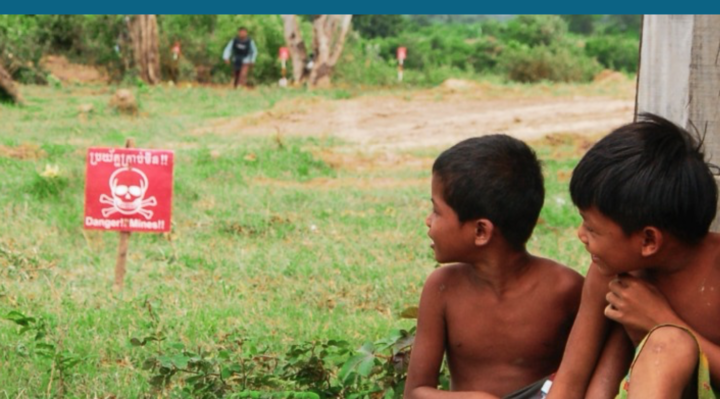‘Under the Norwegian presidency, the new and ambitious Oslo Action Plan is being adopted to step up action against landmines. The Action Plan is an important step towards the goal of a mine-free world by 2025,’ said Minister of Foreign Affairs Ine Eriksen Søreide.
This week, Norway is hosting the Oslo Review Conference of the Mine Ban Convention. The Convention was adopted in Oslo 22 years ago, and forbids all use of anti-personnel mines. As a result, almost 58 million mines have been removed by clearing them from minefields or destroying stockpiles. However, 60 million people still live in areas where mines are a threat to life and health.

‘Countries have now agreed that it is necessary to speed up mine clearance over the next five years. Under the new action plan, all countries will in the near future identify mined areas and put in place national plans for mine clearance in accordance with international standards. This will also be done in areas where armed non-state actors have deployed new mines, often of an improvised nature. This has resulted in the death and injury of growing numbers of civilians after many years when these numbers have fallen,’ said Ms Eriksen Søreide.
The Oslo Action Plan covers the next five years, and was adopted today by the 164 states that are parties to the Mine Ban Convention.
‘For the first time, countries are to measure the progress they are making. I hope that this will raise awareness and inspire greater effort. Another new element is the requirement to provide appropriate mine risk education for everyone – women, men and children – living in affected areas. This will contribute to reduce the number of new mine accidents and protect displaced people who are returning to their homes,’ said Ms Eriksen Søreide.
In addition, the action plan highlights the need to ensure that people who have been injured by mines have access to healthcare and other services they need to be able to live independently and in dignity.
Important for the SDGs
The action plan will also be important in the efforts to achieve the Sustainable Development Goals. Most mine-affected countries are low-income countries that are dependent on international support for mine clearance.
‘If national authorities give priority to mine clearance and they have the necessary resources, far more countries will be able to declare themselves mine-free in the near future. The fact that countries have now agreed to mobilise more resources for global mine action is an important step forward. Norway will continue to be a major contributor to these efforts, as we have been for the past 20 years,’ said Ms Eriksen Søreide.
The conference, which began on Monday and ends today, has brought together more than 600 participants from national authorities, civil society, the UN and humanitarian organisations. The Convention’s clear prohibition on all use and trade in anti-personnel mines and the obligation to clear minefields, destroy stockpiles and assist survivors have saved countless lives and helped to make school routes safe, promote economic growth and ensure the inclusion of mine survivors and other people with disabilities. The prohibition on the use of mines is respected by most countries and non-state actors worldwide, including some that have not joined the Convention. Nevertheless, many challenges remain.
‘I would like to thank all our partners for their invaluable efforts. Moving forward, it is important that countries, the UN, the International Red Cross and Red Crescent Movement and civil society all pull together to implement the Action Plan and achieve our common goal of a mine-free world,’ said Ms Eriksen Søreide.
